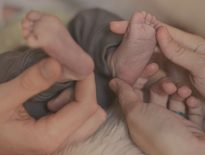Benjamin Solomon Carson is the famous American neurosurgeon who was the first to successfully separate conjoined twins in 1987.
A graduate of Yale University, Carson received his medical degree from the University of Michigan Medical School. Throughout his career, Carson has been a professor of neurosurgery, oncology, plastic surgery and paediatrics, as well as director of paediatric neurosurgery at Johns Hopkins University. He has also established a foundation, the Carson Scholar Fund, to support high-achieving students who are committed to serving their communities.
In 2008, Dr Carson was awarded the Presidential Medal of Freedom by US President George W Bush. In February 2013, Dr Carson gave a high-profile speech at the annual US Prayer Breakfast. The impact of his speech was magnified by the presence of President Barack Obama, whose policies are in some ways at odds with Dr Carson’s views. Ben Carson is also known as an author.
After a difficult start in life, you came to a point where you were faced with unimagined possibilities and chose neurosurgery. Why did you choose it?
I asked myself what I was good at, because God gives you talents for what He wants you to do. I analysed myself and saw that I had very good hand-eye coordination, the ability to think three-dimensionally, I was very attentive, very confident in my movements. I started thinking about all this and my interest in the brain. So I told myself that I should become a neurosurgeon, that I was perfectly gifted for it. Many people thought it was a strange idea because there were only eight black neurosurgeons in the world at the time. But for me it was very natural.
When you titled your first book Gifted Hands…
…I realised that God had given me a special gift.
Over the years you’ve done some incredible surgeries. Some required large teams of dozens of people working together for days on end.
One of the keys to success has been learning to work together. When it’s not about who gets the credit, but about the end result, it’s amazing how much cooperation you get. You get to work in synergy with smart and talented people and the results can be spectacular.
You are an extraordinary neurosurgeon, you have trained thousands of students, you have written books, you have received the Medal of Freedom in your country, you have had incredible achievements. Looking back on the first half of your personal life, what brings you the greatest fulfilment?
There are many things that make me happy. I meet former patients all the time because I have done so many operations. They are healthy and that gives me great satisfaction. I meet students and doctors who tell me that one of the first books they read was Gifted Hands and that it influenced their lives. Or sometimes they have heard me speak or seen me on television and their lives have been changed in a positive way. That gives me great joy. But it gives me even greater joy to hear from people who have come closer to God.
Since you mentioned God, I know that the Bible played an important role in your childhood. Were you able to continue studying the Bible with such a busy schedule?
Absolutely. I start and end the day by reading the Bible. I also read during the day. It’s something I’ve been doing since I was 14 and something I will do until the day I die. It has become a part of me because, as the book of Psalms says, “Your word is a lamp to my feet and a light to my path.” God gives us guidance and wisdom. I ask Him every day for wisdom. In fact, I think God has a good sense of humour because the book of Proverbs, which I read every day, was written by Solomon. Because of him, my parents gave me the middle name Solomon. I think God knew I would identify with the book of Proverbs. When Solomon became king of Israel, do you remember the first thing he did that made him famous? Two women came to him, each claiming to be the mother of the same child. What did he do? He said split the baby. That’s how I became famous, separating conjoined twins. I guess God has a sense of humour.
In your opinion, what is a good platform to talk about God? Is it enough to have courage?
You have to have some qualities. Abilities are also important. There are a lot of people who are great singers, but they don’t get on a Hollywood stage because they’re not in the right place at the right time and they don’t know the right people. There are many excellent speakers, but they don’t have a platform, they don’t get heard. This cannot be planned. It is something that is given to you. You can take the opportunity or not. I believe that God gave me this platform for a reason. He gave me this career for a reason. This career requires a lot of creative thinking and a lot of courage. To speak on public issues, you need the same qualities.
You once had a debate with one of the world’s greatest atheists, Dr Stephen Hawking. What was that like?
He has no patience with those who believe in God and thinks they are stupid. I told him very clearly, “What you believe in is also a religion.” In fact, I think it’s more of a religion than mine, because it requires more faith. I said, “In your belief system, something was created out of nothing. I haven’t seen anything like that happen. I don’t even know of any scientific proof that it can happen. But suppose something was created out of nothing. Then say it exploded and formed a perfectly organised solar system and universe as such. At the same time, you believe in the second law of thermodynamics, which says that things tend towards a state of disorder. How can the two be reconciled?” Of course he had no good answer.
I asked him how flowers are pollinated. He told me about bees, butterflies, insects, and hummingbirds. I told him we agreed. But which came first? His theory was that plants existed hundreds of thousands, if not millions, of years before these creatures. How were they pollinated? Of course, he didn’t have a good answer to that either. Then I told him that we have complex organ systems, like the kidneys, the eyes, the brain, which have many components that work together. They cannot work on their own. According to natural selection, things that do not work will disappear in the next generations. So how do we get to complex organisms? Does a rod cell in the retina wait millions of years for cone cells to appear, and millions more for neurons and the nerve network? I told him I didn’t understand how that would work and asked him to explain. Of course he couldn’t. And it went on like that.
Then I told him: There are many things you cannot explain and accept by faith. That is why what you believe is your religion. You choose to put your faith in man and his ever-changing ways. I choose to put my faith in God and His unchanging ways.
Was he willing to listen to you?
No.
Dr Carson, you grew up in difficult times, in a hostile environment, in poverty. At that time, many people from disadvantaged backgrounds became very successful. Do you think that is still possible today?
I think there are many opportunities for those who are determined not to be victims. One thing that’s happened, especially in the United States, is that we’ve gone from an “I can” society to a “What you have to do for me” society. A lot of people have become dependent on the government. In many cases, the government is trying to make them dependent because it can control their vote by promising them goods and services, even if it can’t deliver them. I am confident that many people from the poorer sections of society will realise that there are opportunities. If you develop your mind, you become a person of value, and people will create paths towards what you do. But no one can do that for you. You have to make that choice for yourself.
What does it mean to be successful? How do we measure success?
I think success is being able to develop and use your God-given talents to make yourself useful in the society in which you live. I think that’s what success is, not having a billion dollars in your bank account and sitting on your yacht or your private plane all day doing nothing for anybody. That would be a very unsuccessful life for me.
You decided, and I think it was quite painful, to end your career as a surgeon. You now devote your time to public lectures. What are you trying to achieve?
To have maximum impact, you need to have strong relationships. The strongest relationship there is is a relationship with God. He controls all things. It’s fascinating to me that I do a lot of conferences. Almost every day I am in a different state. The crowds are so big and the people are so enthusiastic. I talk about faith, values, common sense, the problems of the country and the logical solutions to these problems. People are interested in these things.
They’re not interested in all the complicated theories of PhD economists that don’t work and make things worse. They are interested in common sense. If you’re over budget, then stop spending so much. Do things honestly and fairly. Treat everyone the same. We have to use logic when we do these things.
That’s your favourite word: “logical”; “a logical politics”. I mean logic, not politics.
That would be an oxymoron. There’s no logic in politics because everyone wants positions and what’s good for them instead of the common good.
You say that politicians have moved away from the original idea of what it means to be a representative of the people.
People have completely lost sight of what their goals are. They are interested in getting re-elected, in getting more support.
Yet there are voices and political parties that talk a lot about helping the poor and disadvantaged. Is that propaganda or something achievable?
It is definitely achievable, but there is a way to do it. The reason why churches and charities are tax exempt is because they help people in their communities. They should do that. We need to encourage them. Every time the government takes on that responsibility, they go bankrupt, after a while they can’t do it. We need to get back to common sense.
Are there enough resources to care for all the poor?
Of course there are, if people are willing to give to others. We need to emphasise that we need to learn how to have compassion, how to share what we have with others.
Jesus seems to send a mixed message. At one point He refused to get involved in a family dispute and do justice. But another time He said we must free those who are slaves in order to restore justice. We cannot do justice, free the slaves just by preaching, because the slaves are in chains. We have to change the laws. We have to fight those who keep the oppressed in chains. You can’t do that just by asking them nicely.
You can teach people how to break their chains. For example, if you look at the poor African-American population in America, whose situation is getting worse, I think, you have to teach people to move their dollars two or three times in their neighbourhood before they’re sent out. That’s how wealth is created. Then you have to teach people to go back to their community when they get rich, so the people in their community can also get rich and teach others. That is the secret of the financial success of Jewish communities or Korean communities, who have great financial success because they have learned to move money. These are lessons to be learnt. That is what a wise leader does. Wise leaders don’t say, “You’re poor because this person is rich” and put you on opposite sides.
So on the one hand we have to teach everyone to be responsible, and on the other hand we have to teach everyone to give according to their means.
That’s why I spoke at the Prayer Breakfast about a tax system based on the model of tithing. Who is more just than God? He says, “If your crops don’t grow, you still owe me a tithe, but less. If you have a very good harvest, you still owe me a tithe.” He doesn’t say, “You owe me three times the tithe.” He’s just saying we owe Him a tithe because the system is self-regulating. If you make a billion dollars, you give ten million dollars. If you make a dollar, you give 10 cents. The system adjusts itself. As soon as you start making adjustments based on how much you think someone should give, you’re putting yourself in God’s place, you’re saying you know more than He knows, when you don’t know.
You started a regular column in the Washington Times. What is the purpose of this and what kind of messages do you convey?
The purpose is to get a different point of view out there, a point of view that puts the people first, not the government. I realise that there are people who do not agree with me. That’s not a problem. I say that if two people agree on everything, one of them is not necessary. We need to encourage civilised dialogue. It is okay to disagree, but we have to talk about it; that is how we will reach a consensus. We will not reach a consensus by throwing mud at the person we disagree with.
People get offended too quickly and look for reasons to attack you, to slander you. They don’t look at the message, the bigger picture. We have to do this all the time. If we are consistent with that message, I think we can have a big impact.
Are you confident that Christians can make a difference in the society in which they live by using their influence logically and unselfishly for what they sincerely believe? Isn’t it a lost battle from the start?
It is not a lost battle. It is something we have to fight for. I would be happy if Christ returned tomorrow. In the meantime, I believe He is empowering us and opening doors for us, giving us opportunities to live the gospel and allow Him to change others through us.
Dr Carson, one last question. In your book, America the Beautiful, you said that God has orchestrated your life from the beginning to the present. What exactly did you mean by that?
When I look back over my life and see the different doors that have opened, the different opportunities that have presented themselves to me, I see that God had always prepared the ground before He opened those doors. He had everything in place from the beginning. He gave me one once-in-a-lifetime case after another, which quickly built up my reputation and secured my position. Then there is the way He put the right people in my life at the right time. Frankly, it couldn’t have gone any better!
That’s why I’m very open about my faith and always have been. Read Proverbs 3:5-6, which says, “Trust in the Lord with all your heart and lean not on your own understanding. In all your ways acknowledge Him, and He will make your paths straight.” He has done just that for me. I acknowledge Him wherever I am and whatever I do. I am not ashamed. I recognise that He is the source of my success.
For example, I wondered why I was asked to speak at the last Prayer Breakfast. I had spoken there 16 years prior and I didn’t know anyone who had spoken twice. Then I found out that Billy Graham had spoken twice. I said to the Lord, “You obviously have something you want me to say there.” He did, and it opened up the next phase of my life. I always count on Him. I always look to Him. And He always takes care of me in a wonderful way.














